On February 15, ten volunteers gathered at Klootchy Creek for a highly productive trail build day. In just two hours, the crew cleared trees using small chainsaws and roughed in an entirely new trail: Pace Maker.
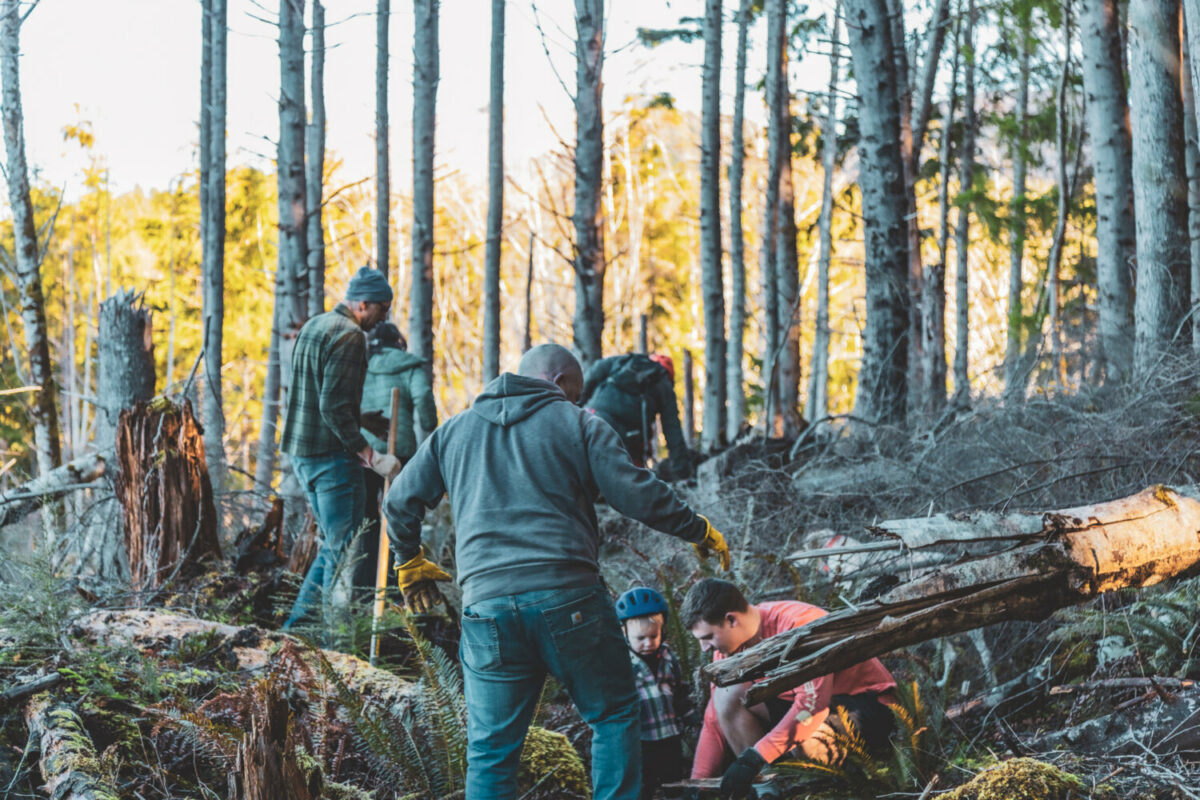
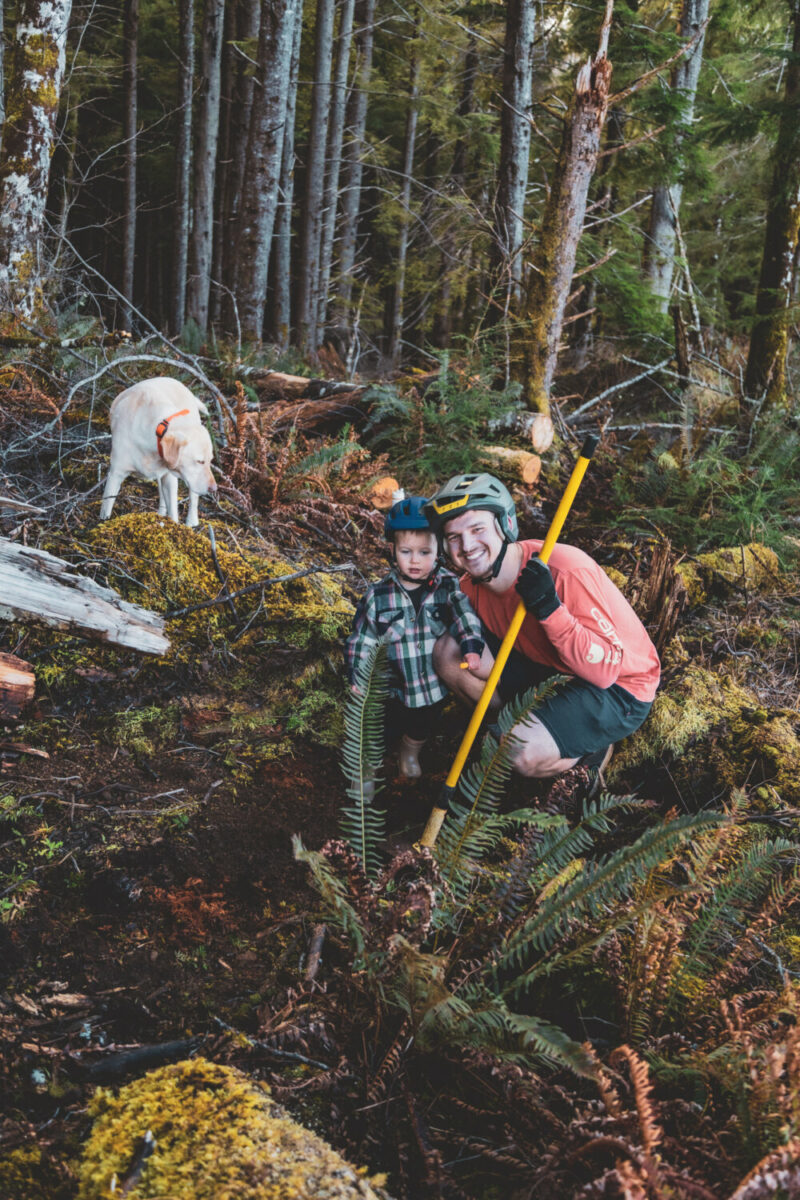
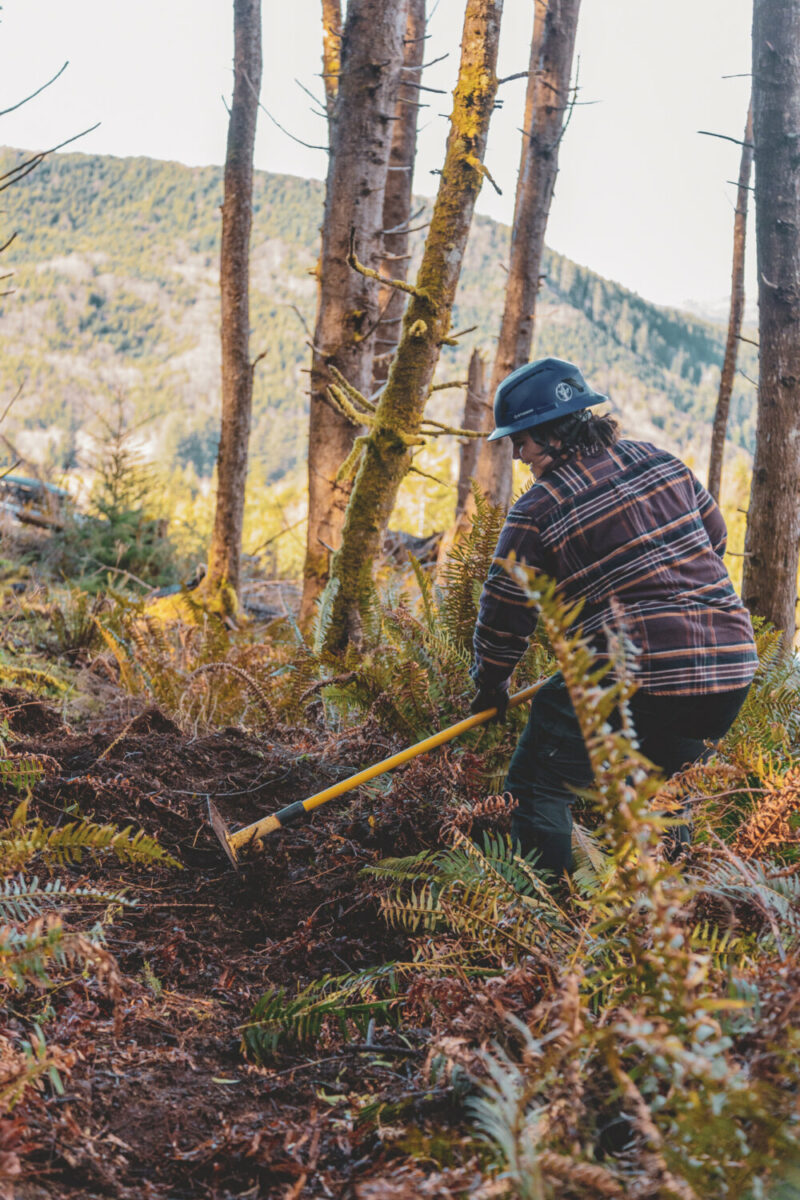
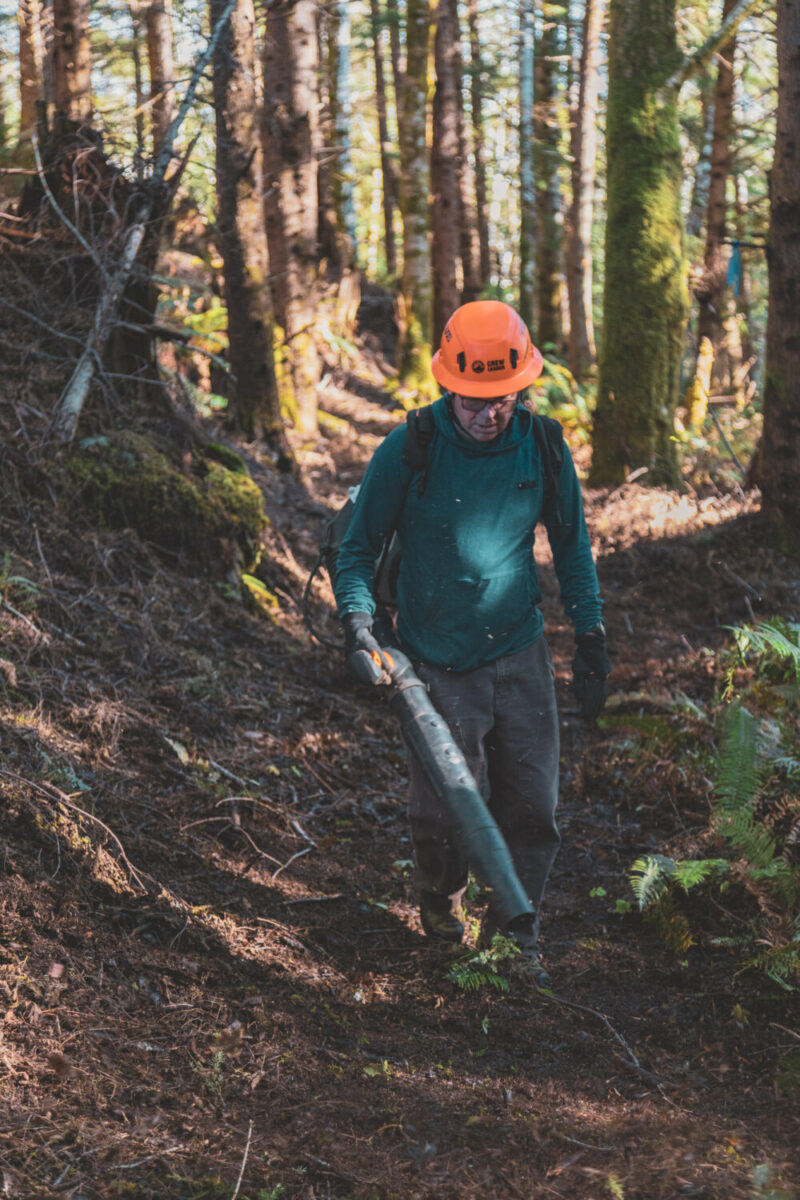
Creating a new trail from scratch requires focus and coordination. Volunteers worked efficiently to clear corridor, remove trees, and rake in fresh tread, transforming raw forest into a rideable new alignment in a remarkably short window of time.
This project is especially important given potential logging impacts on the east side of Klootchy Creek this spring. Expanding lower-skill trail options is a priority, and Pace Maker helps ensure riders will continue to have accessible, enjoyable terrain to explore.
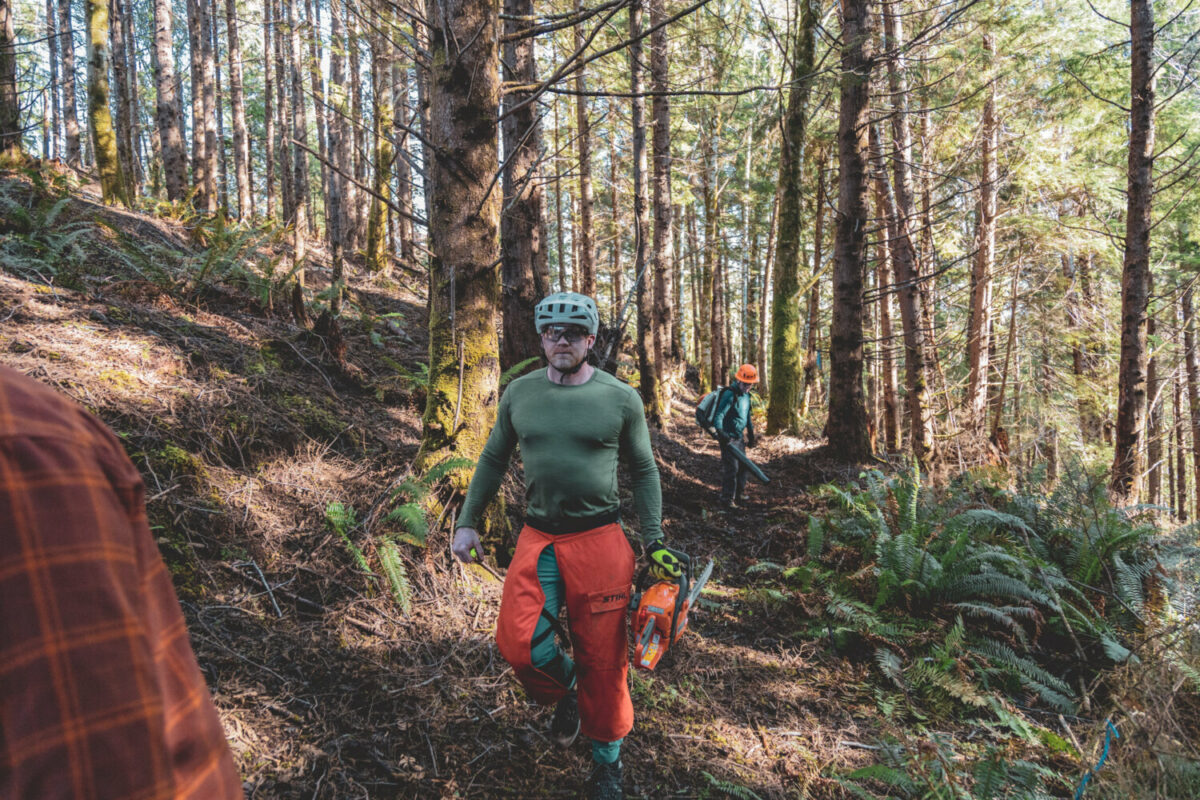
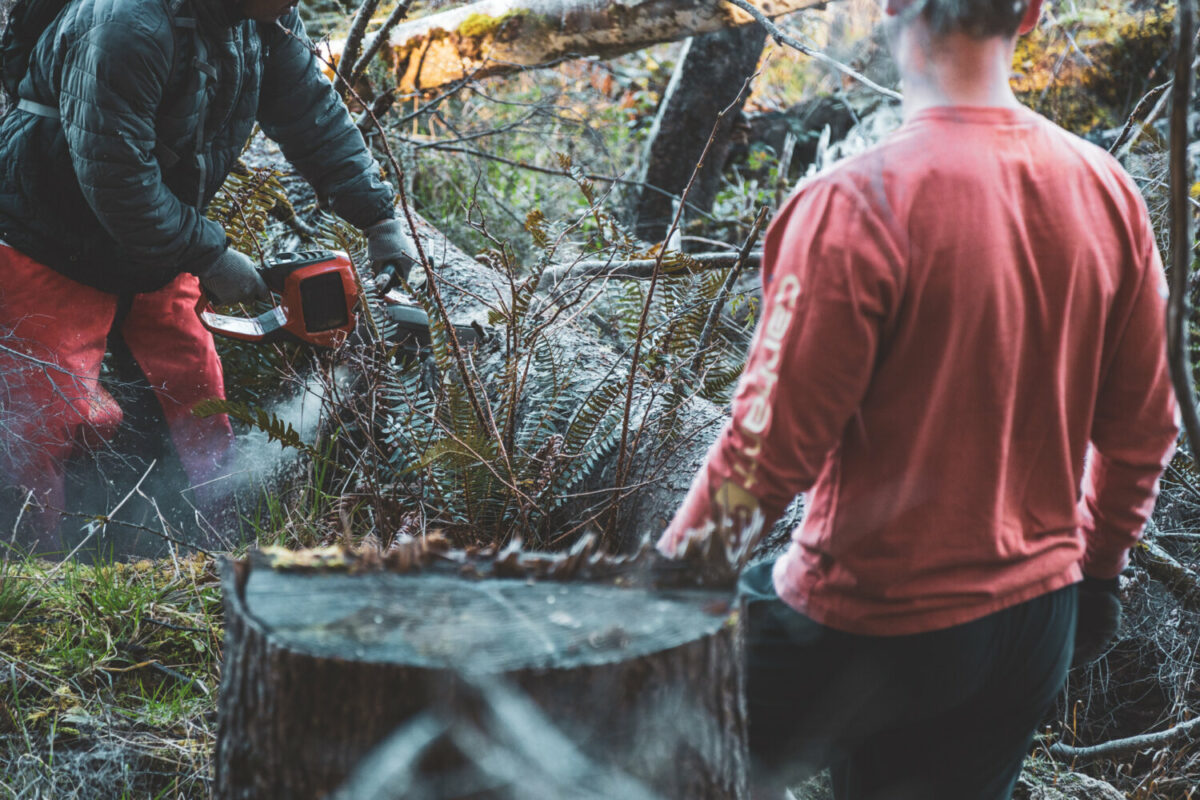
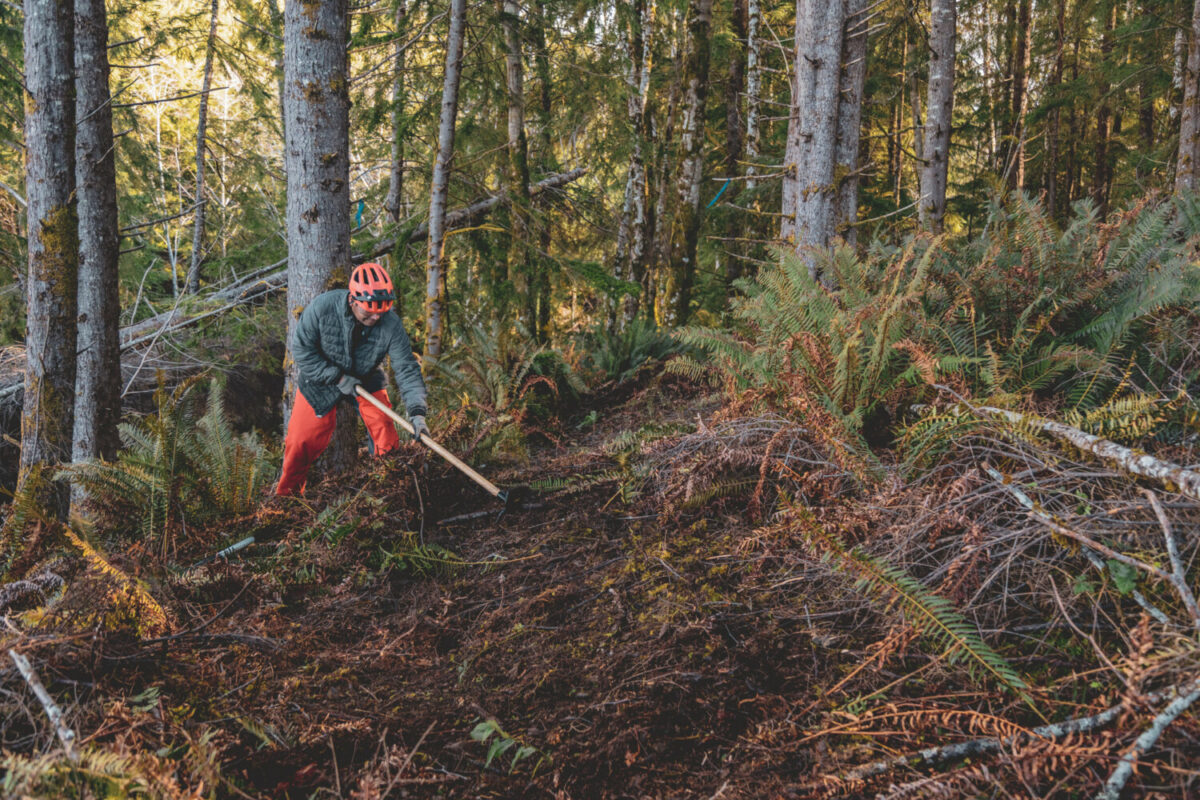
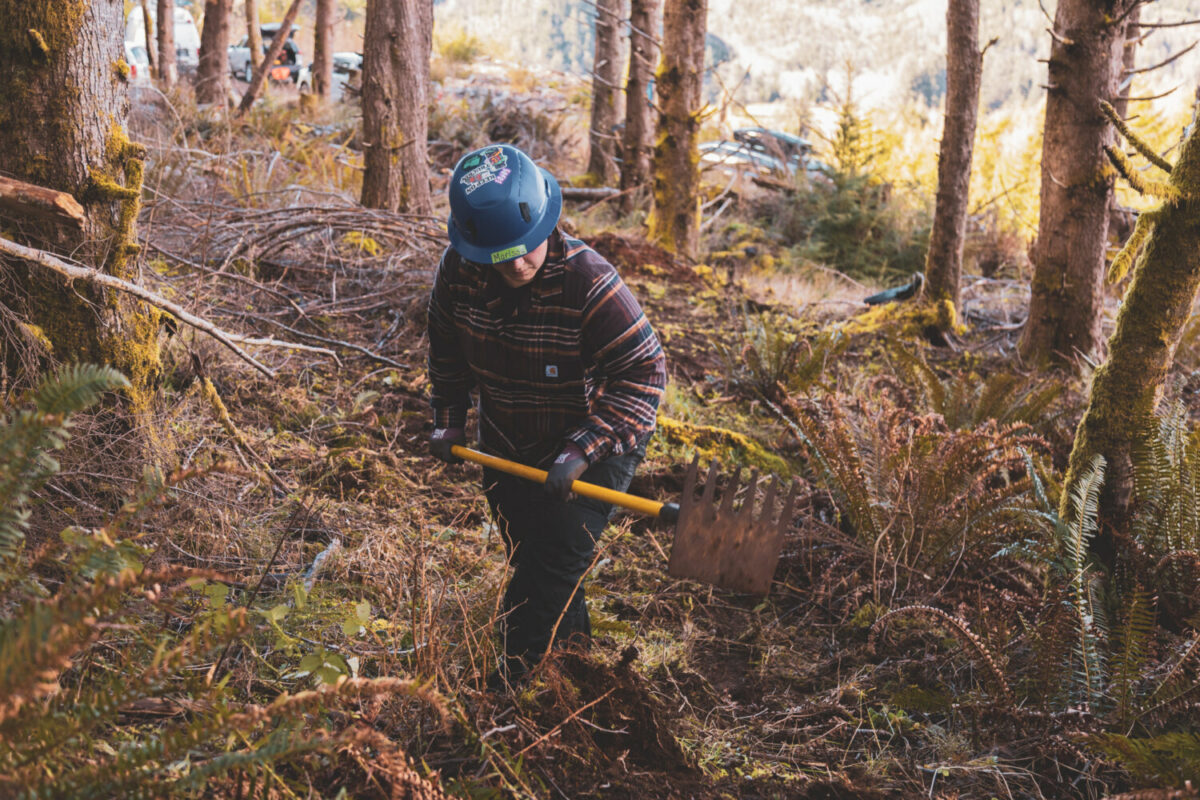
The day wrapped up with an after-party in the parking lot, where Pelican Brewing supported the crew with beer and sandwiches. A big thank you to Pelican for helping volunteers refuel and celebrate a job well done.
Thanks to everyone who showed up and put in the work.
Photo credit: Ross Deardorff